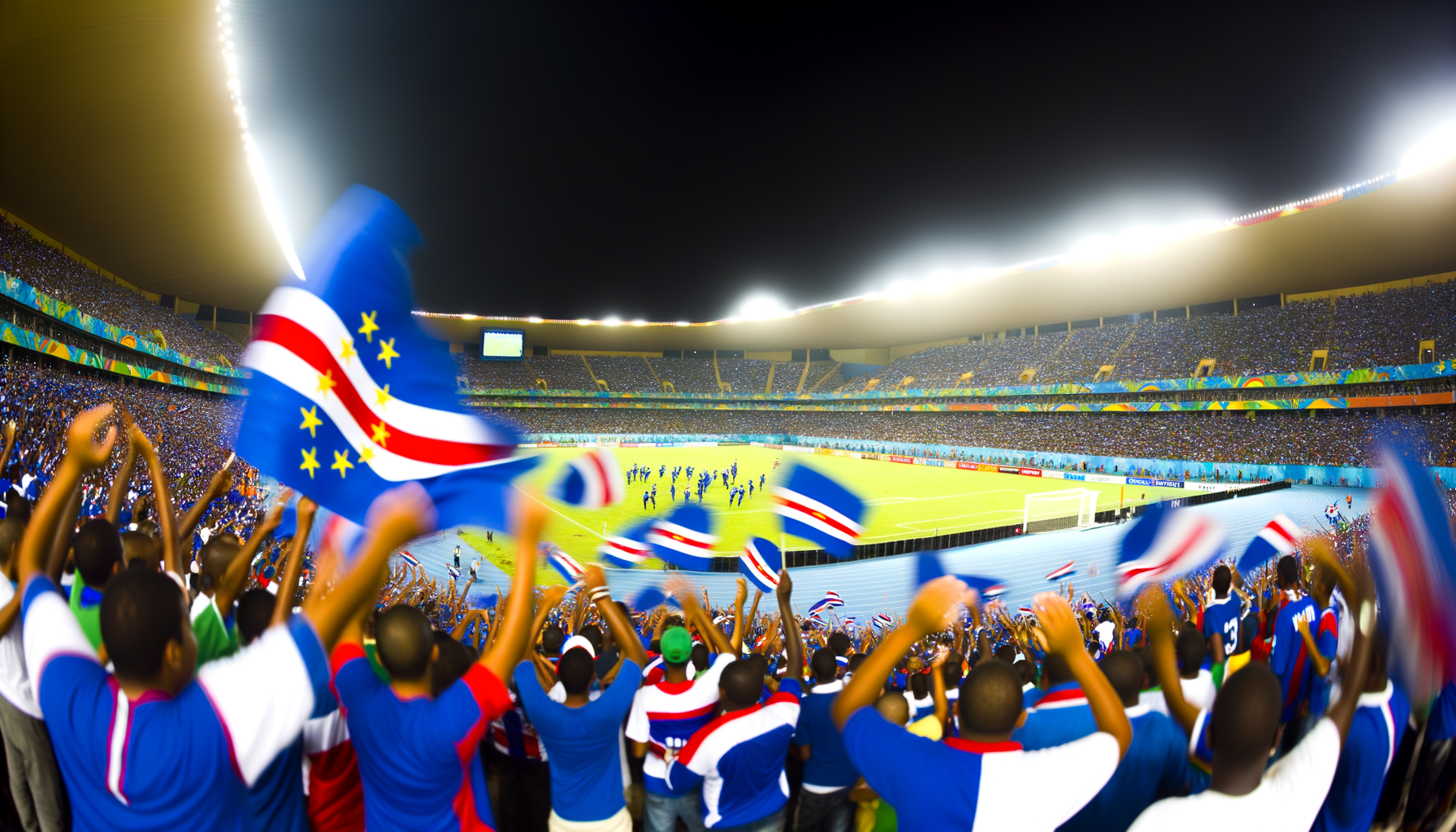Cape Verde’s historic World Cup qualification sparks national pride
Cape Verde celebrates its first-ever World Cup qualification, a milestone hailed as the biggest moment since independence in 1975. Discover how this achievement unites a nation.

By Editorial
Cape Verde’s landmark achievement in world football
Cape Verde, a small island nation off the coast of West Africa, has secured a historic place in the 2026 FIFA World Cup, marking its debut at football’s grandest stage. This achievement has been widely celebrated as the biggest event in the country since gaining independence from Portugal in 1975. The qualification was clinched after a decisive 3-0 victory over Eswatini, sparking nationwide jubilation that united the archipelago’s population of just over half a million.
The significance of World Cup qualification for Cape Verde
For many Cape Verdeans, this moment is more than just a sporting milestone. It represents national pride, identity, and a coming-of-age on the global stage. President Jose Maria Neves likened the feat to the independence movement itself, highlighting the transformative power of this event. The celebrations in the capital city Praia lasted well into the night, with thousands of fans draped in national colours and wearing commemorative World Cup qualification shirts.
Such enthusiasm reflects the deep passion football inspires across the country. Players and supporters alike embraced on the pitch and in the streets, with some moved to tears. This shared joy has been described by head coach Bubista as “enormous happiness” for the people of Cape Verde, marking an emotional culmination of years of hard work.
The role of diaspora players in Cape Verde’s success
Cape Verde’s squad features several players born or raised abroad, embodying a blend of local talent and international experience. Defender Steven Moreira, born in France and currently playing in the US Major League Soccer, expressed the unique pride of representing his ancestral homeland. Similarly, Roberto Lopes, a centre-back with roots in Dublin, spoke of the overwhelming relief and joy felt by the team and fans alike.
This multinational makeup has strengthened the team’s capabilities, drawing from diverse footballing cultures while fostering a tightly-knit squad described as a family. Their unity was evident in on-field celebrations, where camaraderie and shared passion shone through.
The legacy of football for Cape Verde and future ambitions
Qualification for the World Cup is expected to have a lasting impact on Cape Verde’s football infrastructure and ambition. Technical director Rui Costa, who brings over a decade of experience from English football, believes this milestone will catalyse development and inspire future generations. Drawing parallels with other African nations like Senegal, which experienced significant growth after their own World Cup successes, Cape Verde’s future looks promising.
The federation has already voiced intentions to compete for the Africa Cup of Nations title, using this World Cup appearance as a springboard. This ambition reflects a broader trend of smaller footballing nations leveraging international exposure to boost domestic leagues and grassroots programmes.
Community celebrations and cultural pride
Beyond the stadium, celebrations erupted across the islands, including in key locations like Estadio da Varzea, the site of Cape Verde’s independence celebrations and early World Cup qualifiers. The atmosphere was electrified by live music, featuring artists connected to the diaspora, such as members of Dutch hip-hop group Broederliefde.
The street parties, complete with samba and reggae rhythms, car horn honks, and drumbeats, symbolised the nation’s joy and unity. For residents like taxi driver Maximo Gomes, this event is undoubtedly “the biggest since independence.”
What this means for international football and fans
Cape Verde’s qualification adds a fresh narrative to the upcoming 2026 World Cup, hosted across Canada, Mexico, and the United States. Fans worldwide will witness a nation’s first foray into football’s most prestigious tournament, bringing new styles, stories, and passion to the global stage.
For many Cape Verdeans, the tournament presents the chance to face football giants, including Portugal, the former colonial power. This potential matchup carries historical and emotional significance, highlighting football’s unique power to connect past and present.
As the excitement builds, those interested in football governance and data protection in sports can find insights in our article on how the BBC protects your data in sport polls and quizzes. Additionally, for those keen to understand football structures, our comprehensive guide to UK football leagues and teams offers valuable background.
Conclusion: Cape Verde’s new chapter on the world stage
Cape Verde’s historic World Cup qualification is a testament to the nation’s resilience, talent, and passion for football. Beyond the pitch, this achievement has ignited national pride and promises to inspire future generations. With a blend of local and diaspora talent, a passionate fanbase, and ambitious leadership, Cape Verde is poised to make an impact in international football.
As the world tunes into the 2026 World Cup, the Blue Sharks will proudly carry their nation’s flag, showcasing the spirit of an Atlantic archipelago that has made waves far beyond its shores.
Related topics
Editorial
Sports expert at SportsScoop
Specialist in sports analysis and journalism
Related articles
Want to read more?
Explore our comprehensive collection of sports articles and analysis, or contact us for more information.



